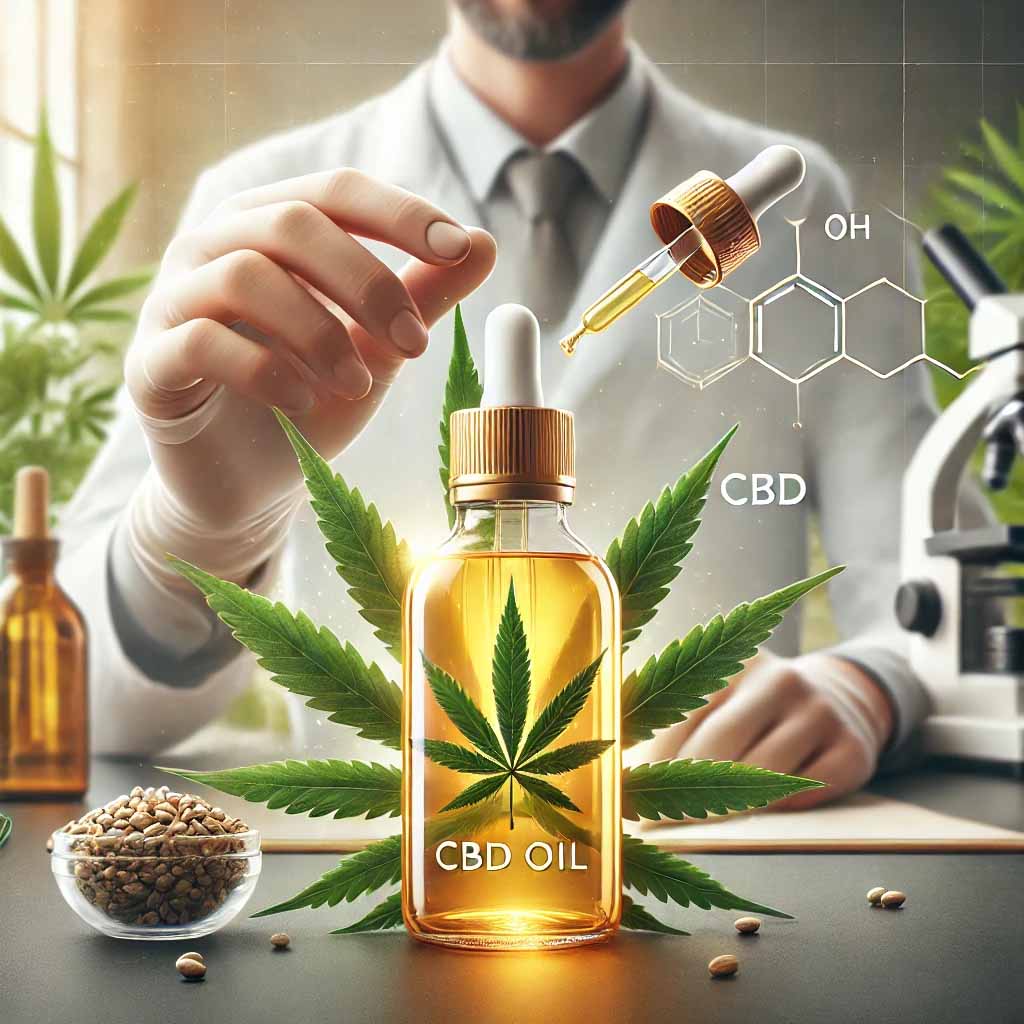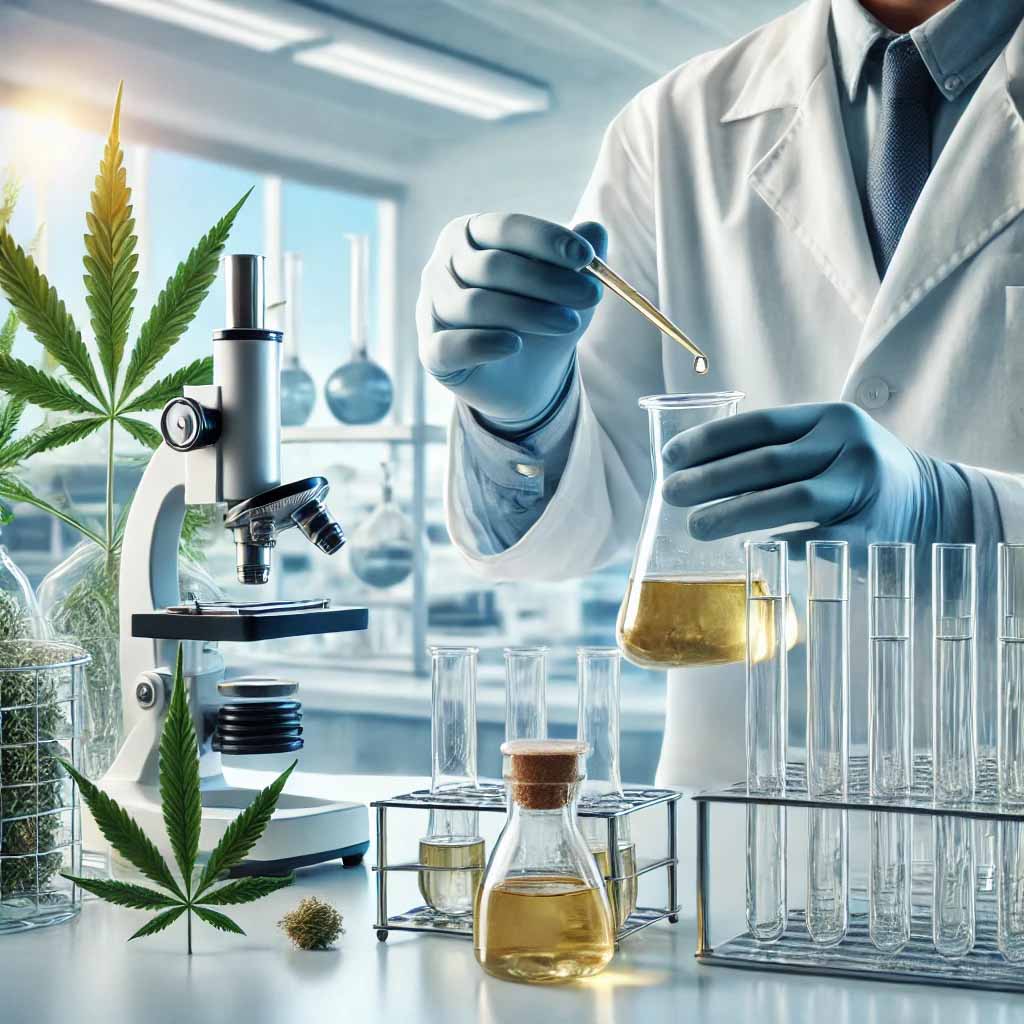CBD oil has become increasingly popular for its potential health benefits. How To Make CBD Oil With 190 Proof Ethanol is a method that allows for a clean and efficient extraction of cannabinoids from the hemp plant. This method utilizes high-proof ethanol to dissolve the active compounds, leaving behind a potent and pure oil. In the following sections, we will explain the steps involved in making CBD oil using this method.
Click to use Silverigroup personal shopper services
What is CBD Oil?
CBD oil is a natural product extracted from the hemp plant, containing cannabidiol (CBD), a non-psychoactive compound. Unlike THC, which causes a “high,” CBD does not produce any mind-altering effects. It is widely used for its potential health benefits, including alleviating pain, reducing anxiety, improving sleep, and promoting healthy skin. People typically use CBD oil by placing a few drops under the tongue or adding it to food and beverages. Over the years, CBD oil has gained popularity as a natural remedy for various conditions, and many people incorporate it into their daily wellness routine for its potential to improve overall well-being.

What is 190 Proof Ethanol?
190 proof ethanol is a high-concentration alcohol, containing 95% ethanol and 5% water. It’s commonly used in industrial and laboratory settings due to its high purity and solvent properties. In the context of CBD oil production, 190 proof ethanol serves as an effective solvent to extract cannabinoids from hemp plants. Its high alcohol content allows it to dissolve the essential compounds like CBD, terpenes, and other active ingredients, while its relatively low water content ensures minimal dilution of the final product. It’s important to handle 190 proof ethanol with care, as it is highly flammable and should be stored properly in a well-ventilated area.
Click to buy citric acid from Silvairgroup
Step-by-Step Guide to Making CBD Oil with 190 Proof Ethanol
Making CBD oil with 190 proof ethanol is an effective method for extracting high-quality cannabinoids from hemp. Below, we will explain the step-by-step process involved in creating your own CBD oil.

1. Preparing the Hemp Material for Extraction
The first step in making CBD oil is preparing the hemp material for extraction. Begin by sourcing high-quality hemp with a high CBD content and low THC levels. The hemp should be finely ground to increase the surface area, allowing for more efficient extraction. The material should be evenly ground, but not too fine, as very fine particles can make filtering the extract more challenging later. Once ground, the hemp is ready for the next step, decarboxylation, to activate the cannabinoids and ensure the oil’s potency.
Click to buy Beluga Fresh Frozen from Silverigroup
2. Decarboxylation: Activating the Cannabinoids
Decarboxylation is essential for activating the cannabinoids present in the hemp plant. Raw cannabis contains CBD-A, an inactive form of CBD, and through decarboxylation, CBD-A is converted into active CBD. To decarboxylate the hemp, preheat the oven to around 220-240°F (104-116°C). Spread the ground hemp evenly on a baking sheet and bake for approximately 30-40 minutes, stirring occasionally to ensure even heating. This process ensures that the cannabinoids are activated, allowing them to be effectively extracted.
3. Extracting CBD Using 190 Proof Ethanol
After decarboxylation, the next step is extraction using 190 proof ethanol. Ethanol serves as a solvent that dissolves the cannabinoids and terpenes from the hemp plant. To begin, place the decarboxylated hemp in a glass container and pour the ethanol over the hemp. Make sure the material is completely submerged. Seal the container and shake gently for several minutes to allow the ethanol to dissolve the active compounds from the hemp. After soaking for about 10-15 minutes, strain the liquid through a cheesecloth or fine mesh strainer to separate the extract from the plant material.
4. Filtering and Purifying the Extract
Once the extraction process is complete, the resulting liquid will contain not only cannabinoids but also unwanted plant matter such as chlorophyll, lipids, and waxes. To purify the extract, filter it through a fine mesh strainer or coffee filter to remove larger particles. For further purification, activated charcoal can be used to remove any residual impurities. This step ensures that the final CBD oil is clean, potent, and free from unwanted compounds. After filtering, the extract is ready for the next stage of the process.
5. Evaporating the Ethanol to Concentrate the CBD Oil
The ethanol used for extraction needs to be removed to concentrate the CBD oil. This can be achieved through evaporation. A double boiler or water bath method is often used to gently heat the extract, causing the ethanol to evaporate without overheating the cannabinoids. As the ethanol evaporates, the remaining liquid will gradually become more concentrated. This process can take several hours. Care should be taken during this step, as ethanol is highly flammable. Once the ethanol has evaporated, a thick, concentrated CBD oil remains.
6. Testing and Storing CBD Oil
After the evaporation process, the CBD oil should be tested to ensure it is of the desired potency and purity. Laboratory testing can measure the exact cannabinoid profile and confirm the concentration of CBD and THC. If professional testing is not available, home test kits can provide some insight into the cannabinoid content. Once the potency is verified, store the CBD oil in a dark glass container to protect it from light and degradation. It should be kept in a cool, dry place, like a cupboard or pantry. When stored correctly, the CBD oil can last for several months.
By following these steps, the process of making CBD oil with 190 proof ethanol ensures a clean, potent, and high-quality final product ready for use.
Key Equipment for CBD Oil Production
Key equipment for CBD oil production includes high-quality hemp, 190 proof ethanol, a grinder for breaking down the hemp, a glass jar or mason jar for extraction, a fine mesh strainer or cheesecloth for filtering, a double boiler or water bath for evaporating ethanol, and dark glass containers for storing the final product. Additionally, a baking sheet and an oven are needed for decarboxylation, which activates the cannabinoids. Having the right equipment ensures that the extraction process is efficient, safe, and results in a potent and pure CBD oil.
Why Make CBD Oil with Ethanol?
Making CBD oil with ethanol is a preferred method due to several key benefits. Ethanol is an efficient solvent that extracts cannabinoids, terpenes, and other beneficial compounds from hemp while ensuring a high level of purity. Here’s why using ethanol is an excellent choice:
- Effective Extraction: Ethanol is highly effective at dissolving cannabinoids, allowing for a clean and potent extract.
- Safe and Accessible: 190 proof ethanol is relatively easy to obtain and safe for use in extraction when handled properly.
- Preservation of Terpenes: Ethanol preserves terpenes, which contribute to the aroma and therapeutic effects of CBD.
- Low Residue: When evaporated correctly, ethanol leaves minimal residue, resulting in a cleaner product.
This extraction method is not only straightforward but also helps ensure the final CBD oil retains its natural compounds and therapeutic benefits.
Alternative Methods for CBD Oil Production
Aside from using 190 proof ethanol, there are several other methods for making CBD oil. One common technique is CO2 extraction, where supercritical CO2 is used to pull cannabinoids and terpenes from the hemp plant. This method is known for producing high-purity, full-spectrum CBD oil. Another method is oil infusion, which involves heating the hemp plant with a carrier oil, like coconut or olive oil, to extract the cannabinoids. This process is slower but ideal for homemade CBD oil. Additionally, butane extraction and hydrocarbon methods are sometimes used, but they require careful handling due to safety concerns. Each method has its advantages, depending on the desired purity and potency.
Conclusion
In conclusion, making CBD oil with 190 proof ethanol is an efficient and effective method for extracting high-quality cannabinoids from hemp. By following the proper steps, including preparation, decarboxylation, extraction, and purification, you can produce potent and pure CBD oil. Ethanol’s ability to dissolve cannabinoids and preserve terpenes ensures a clean, high-quality product. With careful handling and the right equipment, this method provides a safe and reliable way to create CBD oil. By understanding the process, you can enjoy the benefits of homemade CBD oil for personal use or therapeutic purposes.
